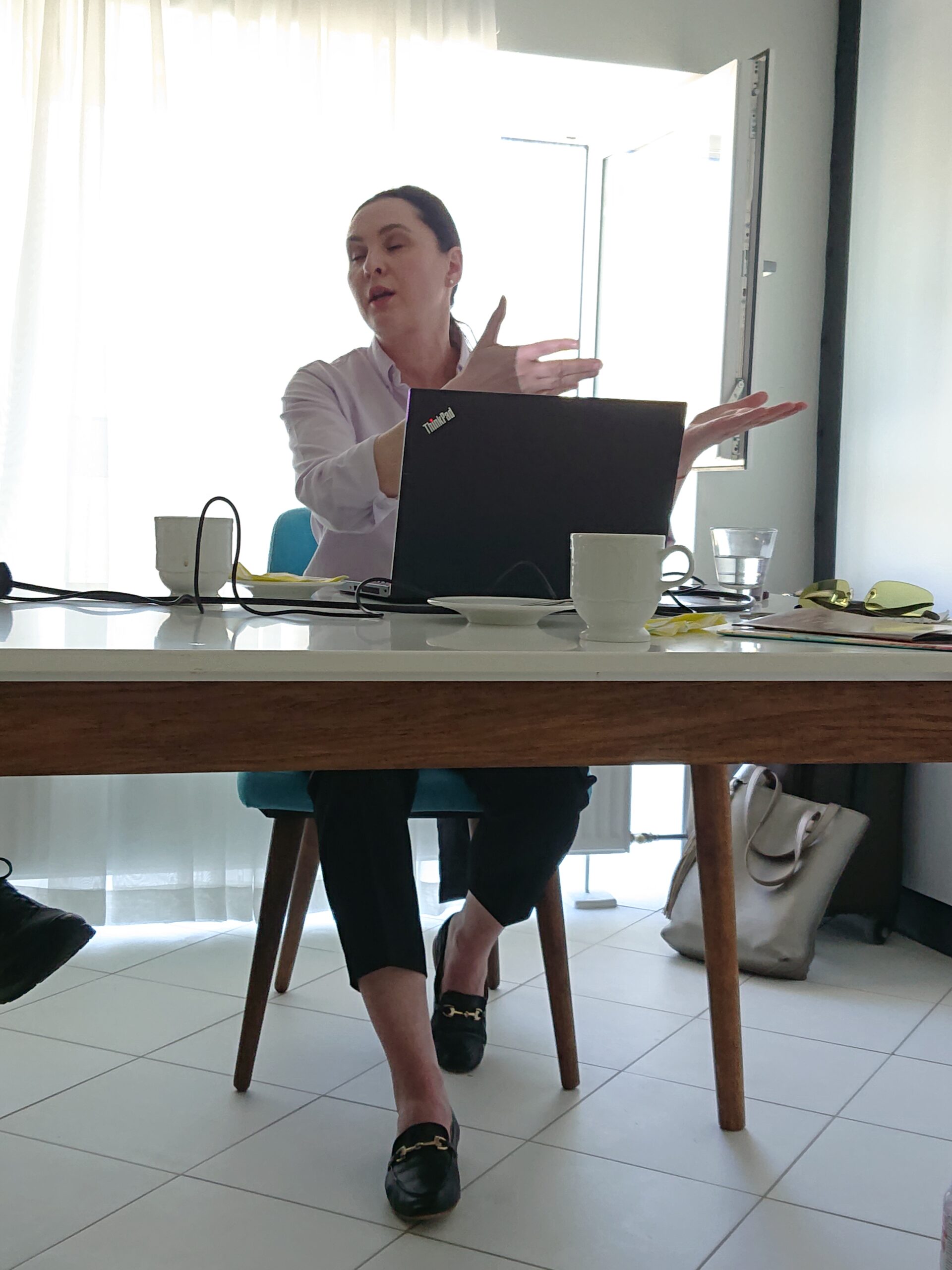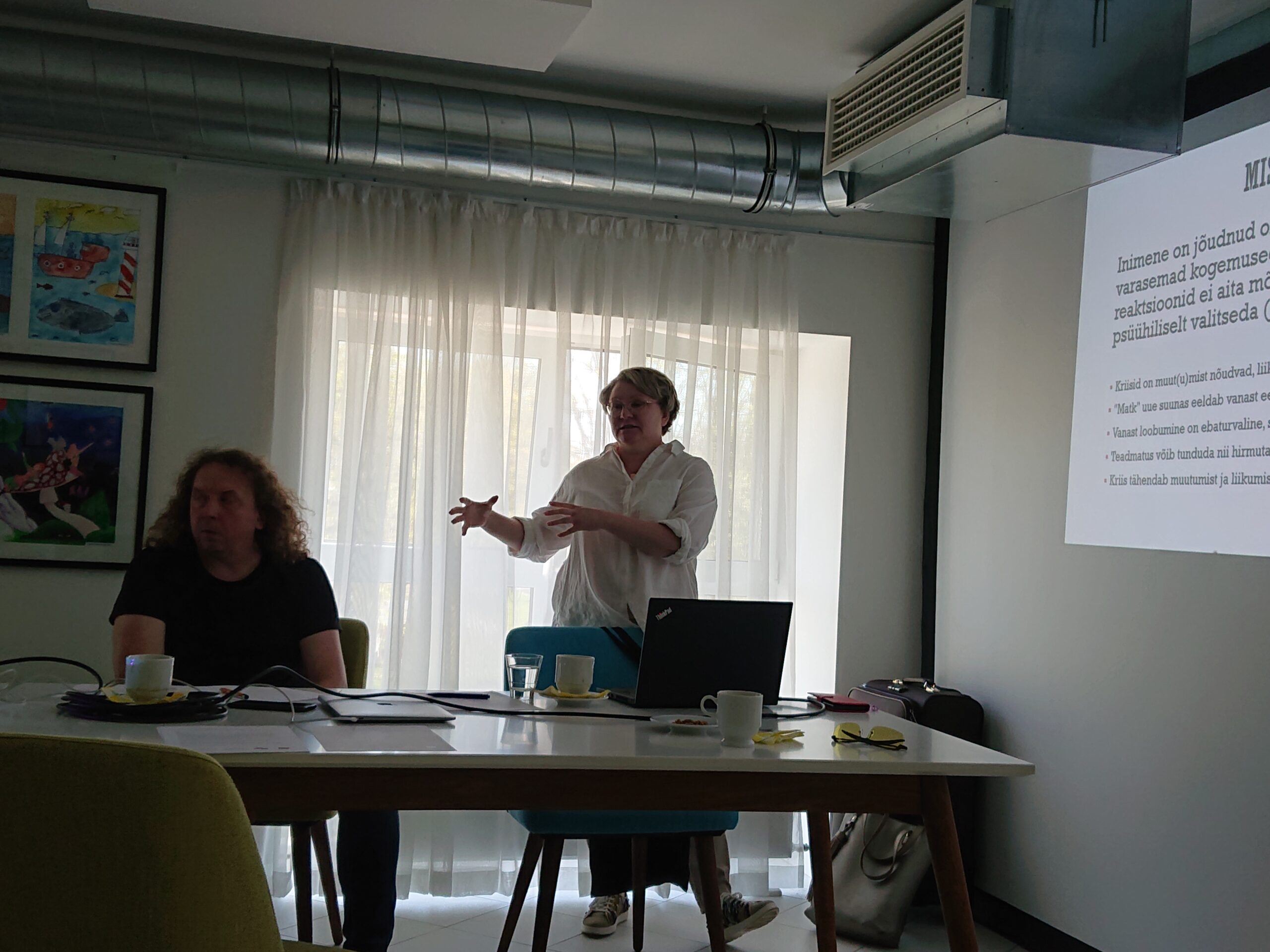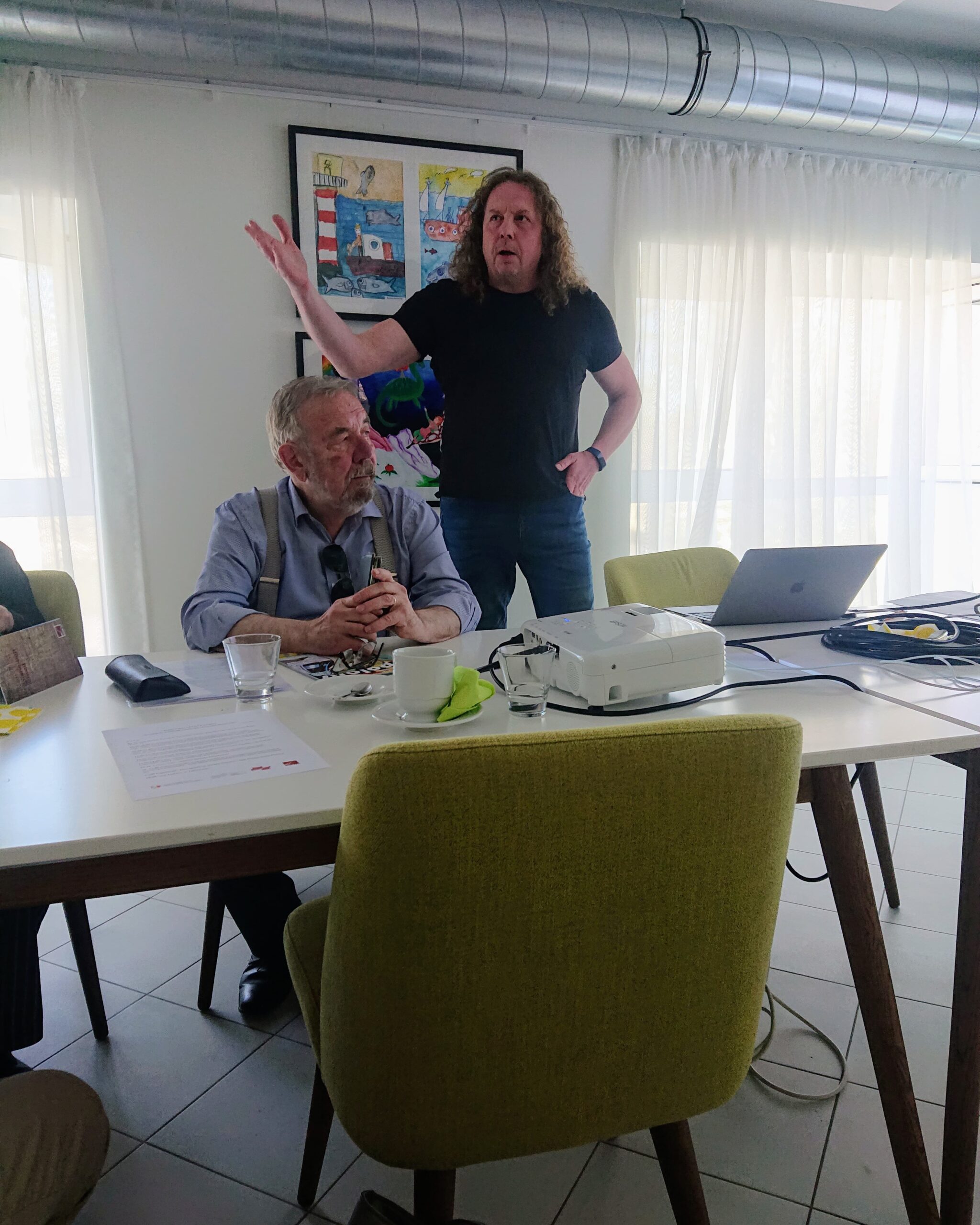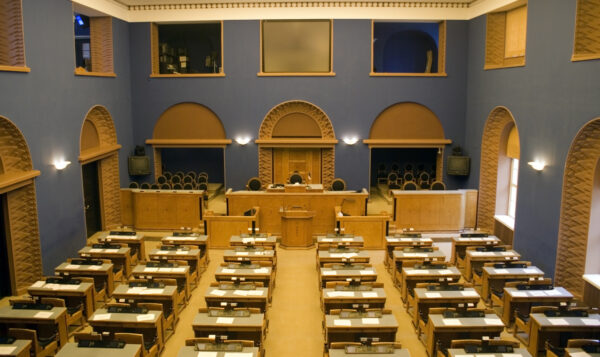Coping with crises and trauma in Finno-Ugric cultures
The crisis and traumas related to Russia’s aggression in Ukraine affect not only representatives of Finno-Ugric minorities living in Estonia with Russian citizenship, but also Estonians: there is mutual learning. Estonians and Finns, as small nations and Finno-Ugric people, have been forced to adapt to very rapid social changes due to the changed geopolitical situation and the war, and that is not always easy. This was discussed at the OEF/Active Citizens Fund project seminar held on 13 May in Tapa.
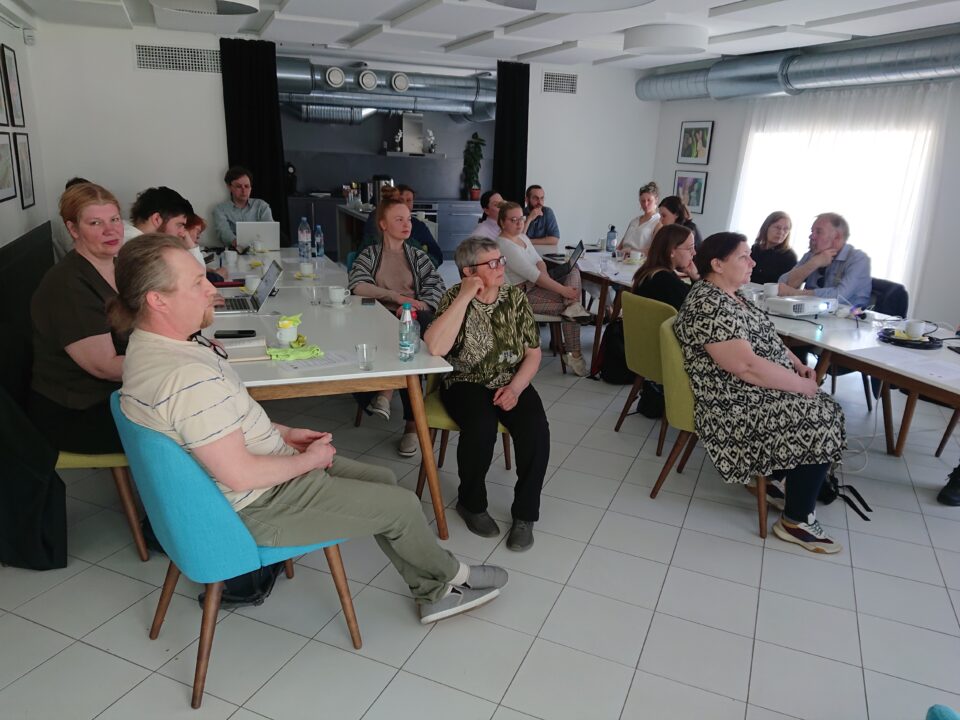
The seminar “Coping with crises and trauma in Finno-Ugric cultures” of Fenno-Ugria and the AEF/ACF programme took place on Saturday, 13 May at the Tapa Municipal Culture Centre.
In the introduction, the director of Fenno-Ugria, Barbi Pilvre, introduced the School of Democracy project of the Open Estonia Foundation’s Active Citizens Fund (OEF/ACF), which was launched in April: why such a training, why such a title, what is the content of the project and what is planned for the year. In short, the aim of the project is to increase the civic activity of the Finno-Ugric and other minorities operating in Estonia, to strengthen their connection with Estonian society, to increase political education and awareness, media literacy and self-management skills in crisis situations.
At the same time, the change experienced by Estonians is significantly different from that of Finno-Ugric people in Estonia with a Russian background and mainly Russian citizenship. The closure of the Russian-Estonian border and difficult communication with relatives on the other side of the border is not easy, serious topics are often avoided in phone calls for security reasons. Travelling to one’s home country is fraught with fear and risk – and trips are often abandoned – even though there is the possibility to cross the border.
In his speech, Fenno-Ugria’s adviser Jaak Prozes emphasised the focus of the seminar: why we are talking about a spiritual crisis in connection with the Finno-Ugric communities right now, what kind of situation the war in Ukraine has forced us into.
Family and national traumas
It was discussed in an open conversation that changes tear open the traumas and family and national memories related to the Second World War of the 20th century – coping with all this is not obvious, even for Estonians. The strained relations with the Russian communities in many places are known. The arrival of Ukrainian war refugees has put Estonians and local Russian-speaking people in a new situation where they have to adapt to new people on a local level, often in small places, which is not always easy. On the one hand, the desire to help and helping is noble, on the other hand, it is the “indulgence” of the Estonian people who have already reached the welfare society (as pointed out by the art researcher Karin Paulus, who participated in the seminar), as well as protective magic – we are lucky as a nation and now everything is even too good, by helping we ease the pangs of conscience for our well-being and if we help those in need, maybe it will stave off a greater evil.
Emotions, crisis, trauma – and how to deal with them
Clinical psychologist, lecturer at the University of Tartu, representative of the Udmurt community Inga Ignatieva gave a nearly three-hour in-depth theoretical insight: what are basic emotions, what is trauma, what is a mental crisis. How we deal with our emotions, where do traumas arise from and how they affect a person’s daily life. The topic of personal traumas led to national traumas and crises. Inga Ignatieva also dwelt on the topic of grief. How is grief understood today and why is mourning necessary at all, what happens when irreversible loss is denied and the truth is not acknowledged: when the situation has changed; what happens if you don’t take time for grief – in personal, family, national terms. How to tell children about irreversible loss is a separate topic.
The concept of grief can be used in both personal, communal and social dimensions – the project will continue with the theme of recognising changes and coping with a new situation at the summer school in Peipiäärse Kadrina Manor on 18-20 August.
It was discussed that the entire Finno-Ugric movement and Fenno-Ugria as an organisation are in crisis and we have to adapt to changes and the new situation.
The President of the Union of Nations in Estonia (ERÜ) Natalia Ermakov gave an overview of coping with crises among the Erzya through the phenomenon of the culture of mourning. She talked about what is the circumstance for crying in the Erzya culture – done by women. Lamenting is used to mark pivotal events in a person’s life, such as marriage, death, and traditionally also becoming a conscript in the army. Lamenting culture, like other traditional behaviour patterns, is disappearing from Erzya villages, while it lives on in modern poetry: also Natalia Ermakov herself has written poems in the Erzya language.
Hofstede’s cultural dimensions explaining cultural differences
Associate professor of the University of Tartu and chair of the board of Fenno-Ugria, Madis Arukask, spoke about the patterns of coping with crises and traumas in Finno-Ugric cultures – what our common cultural heritage tells us. He gave an overview of the Dutch value researcher Geert Hofstede’s cultural typology. In the 1960s, Hofstede began to compare the values of the employees of the international information technology group IBM in different countries and developed his theory further until the 1980s. He describes the differences between cultures using six dimensions – cultural dimensions – which can be used to explain cultural differences based on dominant values. The cultural dimensions according to Hofstede are: collectivism-individualism – preference for the rules of either the group or the individual in culture; power distance – the extent to which the community/society accepts hierarchies and social inequality; how the avoidance of uncertainty is organised – the provision of formalities and rules or their lacking; masculinity-femininity in culture, which Hofstede interprets as orientation to achievements or human relations and community support; temporal orientation – orientation towards today or the future, eternity; indulgence or demandingness/restriction – how much freedom societal norms allow an individual to fulfil human desires.
Based on Hofstede, traditional cultures represented by the traditional Finno-Ugric cultures and today’s Western liberal values-oriented way of life are fundamentally different. Madis Arukask has studied the Votic culture, which has essentially disappeared, and described its collectivist, feminine, eternity-oriented values. Estonian culture as a whole has undergone a great change in recent decades and is increasingly acquiring the features of Anglo-American individualistic cultures, while there are still many characteristics of traditional cultures in the village society of each region (e.g. Kihnu).
Cultural differences versus individual differences
According to Hofstede, crises and traumas are handled differently in cultures – this was echoed in Madis Arukask’s presentation. At the same time, as a clinical psychologist and practitioner, Inga Ignatieva found that people with different cultural backgrounds are rather similar in terms of emotions (which are based on physiology), the same defense mechanisms are triggered in crises, and in the case of personal trauma and the ways to deal with it as well as psychological assistance, differences in cultural background are not decisive.
During the lunch break in a pizza cafe in Tapa, you could experience a vivid variety of cultures. In addition to the members of the Finno-Ugric communities of the seminar, military personnel from NATO units with different backgrounds, who are based in the Tapa Army Base, were at the same time for lunch.
After lunch, the guide of the Tapa Museum gave the participants of the seminar an overview of the past and present conditions of the railway and military base town of Tapa, which speaks of multiculturalism and constant adaptation to new situations.
